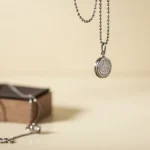The Historical Impact of UK Fashion on Women’s Style
The UK fashion history reveals a rich tapestry that has continuously shaped women’s style choices. From the Victorian Era’s structured silhouettes to the rebellious 1960s Mod movement, British fashion evolution reflects social changes and cultural milestones. Each key era brought distinct elements influencing how women express themselves through clothing.
During the early 20th century, the suffragette movement pushed for practical yet stylish attire, allowing women greater freedom and symbolizing empowerment. Post-war Britain saw the rise of youth culture, drastically altering fashion norms and paving the way for daring looks like the mini skirt and bold prints. These historical British fashion trends did not merely fade but laid foundations for today’s style.
Also to read : What Are the Essential Accessories for Every Stylish Woman’s Wardrobe?
Modern designers frequently draw on past inspirations—such as tailored cuts or classic plaids—emphasizing a continuity in British fashion evolution. Understanding this historical context enriches our appreciation of how UK fashion history informs contemporary women’s wardrobes. Exploring these enduring style elements also offers insight into fashion as a form of cultural expression and identity across generations.
Contemporary UK Fashion Trends and Influential Designers
Exploring the pulse of British style today
Also read : What are the latest ethical fashion movements in the UK?
The UK fashion trends currently shaping women’s wardrobes emphasize versatility and individuality. From bold prints to sustainable fabrics, designers prioritize pieces that blend classic British tailoring with modern innovation. The fusion of streetwear and high fashion stands out, reflecting a dynamic and youthful spirit in the market.
Among the most influential British fashion designers today are Vivienne Westwood, renowned for her punk-inspired aesthetics, and Stella McCartney, a leader in eco-friendly luxury wear. These designers and others continue to push boundaries, reinforcing the UK as a crucial hub for creative fashion.
Iconic British brands such as Burberry and Alexander McQueen remain key players, balancing traditional craftsmanship with contemporary appeal. Their collections often feature at London Fashion Week, a pivotal event that sets global trends and highlights new talents. This platform solidifies the UK’s role as a trendsetter, influencing women’s fashion worldwide with innovative designs and cultural relevance.
UK Street Style and Its Global Influence
UK street style stands out for its bold blend of individuality and cultural diversity, making it a powerful force in contemporary fashion. Rooted deeply in the urban landscapes of London, Manchester, and Birmingham, this style combines elements of punk, skate, sportswear, and vintage influences, creating an eclectic yet cohesive look. The emphasis on self-expression and creativity sets UK street style apart, continually shaping trends rather than following them.
London fashion hubs, such as Shoreditch and Camden, serve as incubators for new ideas, where designers and enthusiasts mix streetwear with luxury pieces. This fusion highlights how UK street style thrives on contrast and innovation. The urban fashion scenes in these cities provide a canvas for youth culture, music, and art to intersect, reinforcing the style’s raw and dynamic nature.
Globally, UK street style has been adopted and adapted across continents, influencing fashion capitals from Tokyo to New York. Its impact is evident in the rise of streetwear brands inspired by British culture, emphasizing comfort, rebellion, and authenticity. This global fashion influence confirms UK street style as an enduring, evolving phenomenon.
Media, Cultural Icons, and the Shaping of Personal Style
Exploring the British footprint in global fashion expression
British media fashion has long played a pivotal role in spreading trends, both domestically and internationally. Influential magazines and television shows provide platforms that not only showcase but also dictate evolving styles. This dynamic interaction helps shape what women choose to wear, blending tradition with innovation.
UK style icons from music, film, and royalty serve as undeniable catalysts in the fashion world. Figures like British musicians, renowned actors, and members of the royal family inspire countless admirers. Their public appearances often set new benchmarks, turning individual styles into widespread trends, thereby strongly influencing women’s fashion choices.
Social media platforms now act as powerful amplifiers of British fashion influence. By enabling real-time sharing and instant access to celebrity looks, these channels extend the reach of British media fashion beyond geographical limits. This digital age transformation has democratized style inspiration, making UK style icons accessible to a global audience like never before.
Personal Expression: Adapting UK Fashion to Individual Style
Adapting UK fashion to personal style choices allows women to embrace British trends while maintaining their unique identity. UK fashion inspiration often comes from iconic street style and timeless designs, yet how one personalises these influences transforms them into true self-expression through fashion.
Women can incorporate elements like plaids, tailored pieces, or bold accessories into their wardrobes, blending traditional UK aesthetics with their individual flair. This balance encourages creativity; for example, pairing a classic trench coat with vibrant scarves or mixing edgy prints with minimalist basics showcases personal style choices within a British fashion context.
Experts emphasize that self-expression through fashion is about authenticity, not imitation. As style consultant Jane Smith notes, “Incorporating UK fashion is about interpreting trends on your terms, reflecting your personality.” This outlook empowers women to remain fashionable yet distinct, highlighting the value of marrying UK fashion inspiration with personal narratives.
By toggling between global trends and local preferences, women achieve a harmonious presentation of self. In essence, authentic personal style thrives when British fashion serves as a versatile foundation, not a rigid template.



